Published Nov 5, 2016
Catching Up with 2X Trek Guest Gerrit Graham
Catching Up with 2X Trek Guest Gerrit Graham
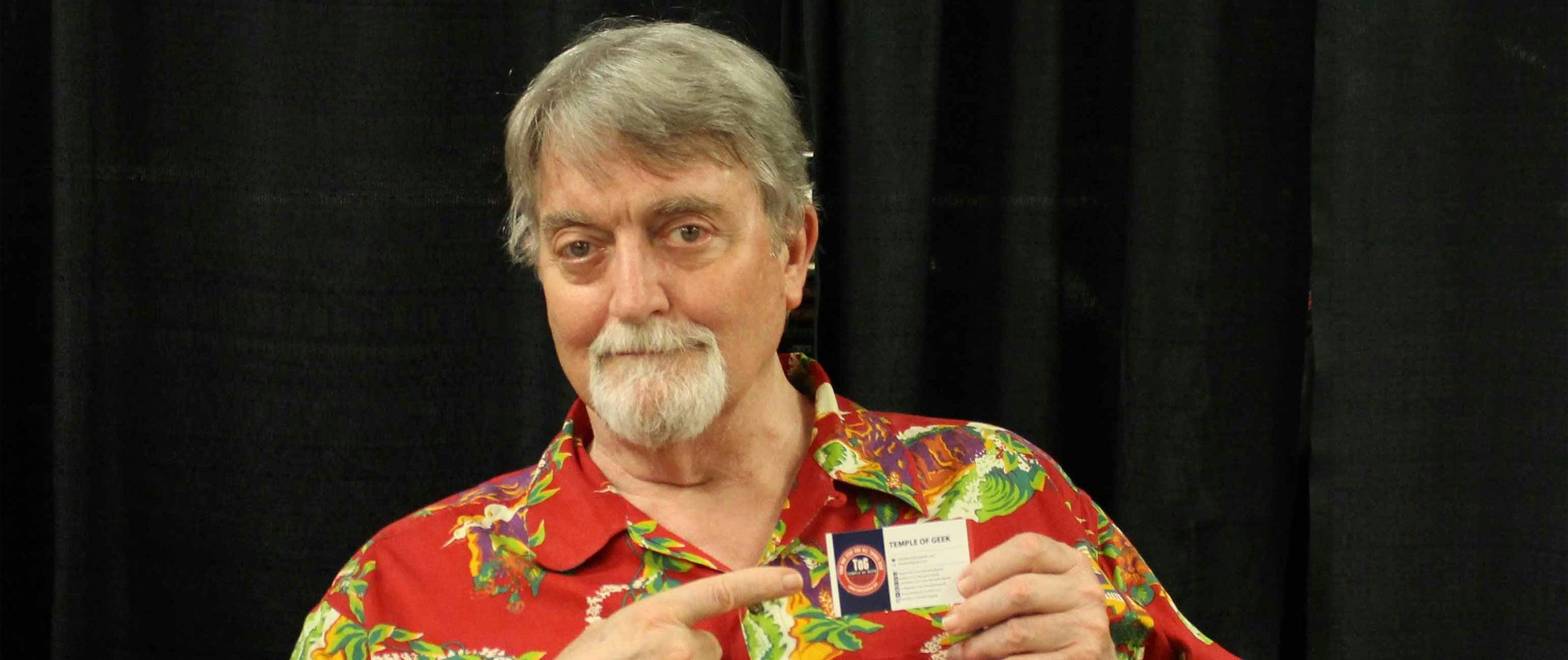
What do Phantom of the Paradise, Tunnel Vision, Demon Seed, Used Cars, TerrorVision, Chopping Mall, C.H.U.D. II, Babylon 5, The Larry Sanders Show, Child's Play 2, Seinfeld, Wasp Woman, The Critic, Gargoyles, Now and Again, Deep Space Nine and Voyager all have in common? That’d be Gerrit Graham, the versatile character actor who appeared in each and every one of them. Graham actually almost won the role of Odo on DS9, losing out to Rene Auberjonois. However, he went on to guest star as The Hunter in the DS9 episode “Captive Pursuit” and returned to Paramount again a few years later to portray Q Too in the controversial Voyager hour “Death Wish.” StarTrek.com recently caught up with Graham via telephone to discuss his career, his Trek memories and more. Here’s what he had to say:
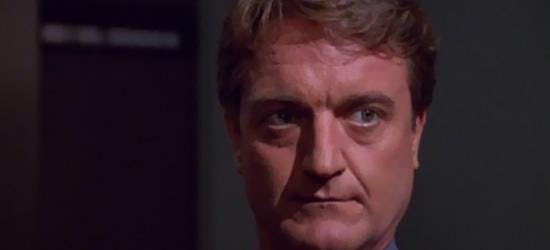
We haven’t seen you on screen in a long while. What have you been up to?
I’m up to nothing. I've been sidelined by some physical problems, so I'm up to nothing at all, other than watching a lot of old movies and reading books. And I do some autographs shows, too.
If an acting opportunity came along, would you be interested?
I would certainly do it if I could, and if I'm up to it. I just can't play the guy who runs down the street because the bad guys are chasing him, do you know what I mean? I'm not physically up to snuff, but if it were a Perry Mason part in a wheelchair, or sitting at the desk or whatever, of course, I could do that, sure.
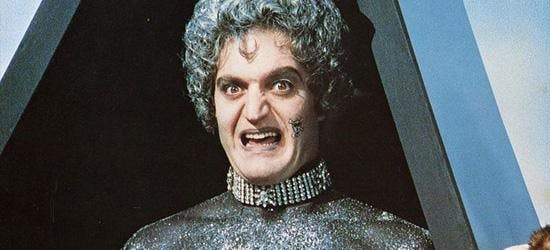
You've been in some great TV shows, as well as some real cult classic movies. Star Trek aside, because we'll talk about that specifically in a minute, when people recognize you on the street, or they meet you at a convention, or an autograph show, what are the credits they're most eager to discuss?
Phantom of the Paradise, definitely. And people like Child's Play 2 a lot, just going by what pictures I sign at shows. If it were the right kind of situation, Used Cars. TerrorVision, it turns out, has a huge following that I didn't realize until quite recently.
A lot of actors get stuck in one groove. They end up doing all television, or all soap operas, or all horror. You've done straight shows, dramas, action, and kitschy stuff like C.H.U.D. II.
And lots of comedy.
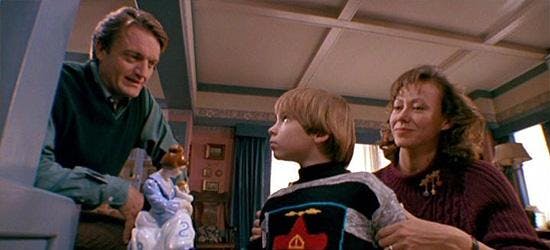
We’ve heard you called Mr. Versatility, which you consider part compliment and part insult, right?
Well, yeah, though actually it's a great compliment. It's an insult in terms of your standing within the industry. It means that they don't know what to do with you. Hollywood loves to be able to pigeonhole people. The guy who does Westerns. The guy who does comedies, or horror or sci-fi. What was your word, groove? Whatever your specific groove is that they can fit you into, that's what they like. If you can do too many different things, well, then they don't know what to make of you, which was something that happened to me in Hollywood. I didn't get the shots that I might have gotten at romantic-comedy leads, to pick one thing, because the last thing somebody saw me in was a romantic-comedy. They're not able to make the cognitive leap between one kind of role and another. I've always prided myself on my versatility. Yes, I can do everything. I don't think many actors can say that.
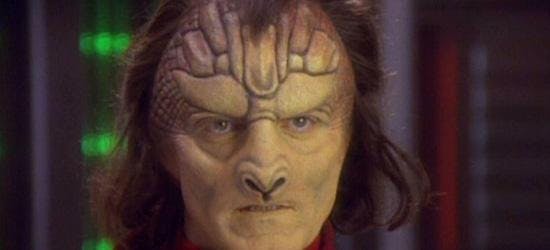
Moving on to Star Trek, how familiar were you with Star Trek in general, and is it true that you actually auditioned for Odo on Deep Space Nine?
I did audition for that, actually. They chucked it to René. Not that there's any flies on my friend, René, by any means. I wasn't a Trekkie. My father, curiously enough, who was an educator and a private school headmaster, was hooked on the original Star Trek. It was that or baseball games. He never watched anything else on TV. For some reason, he loved Star Trek. He was never able to explain it to me adequately. Something got under his skin, but I, for many years, never watched television at all. I didn't have a television in my house until I got married, which was when I was 32 or 33. Before that, my knowledge of television was really limited.
Star Trek was just something that my agent sent me to audition for. The first one I did was DS9, and I was just a basic bad guy who happened to be wearing a rubber head. There was nothing special about that, really, but once you hit the set you realize how special the situation is, because they took fantastic care with every single detail. When I did Voyager, they were very particular about things like my hair. When I got there, I'd been given a Starfleet haircut. One of the producers walked in while I was shooting my first scene, and he was like, "No, no, no, stop! Stop, stop, stop! This hair's wrong! He shouldn't have that Starfleet haircut." "Well, what should he have?" "His own hair! The hair he auditioned with." Which, admittedly, doesn't look much like a Starfleet haircut. They were willing to stop the entire production in its tracks so that I could go away for half an hour and shampoo my head and come back, in order to protect the integrity of their vision.
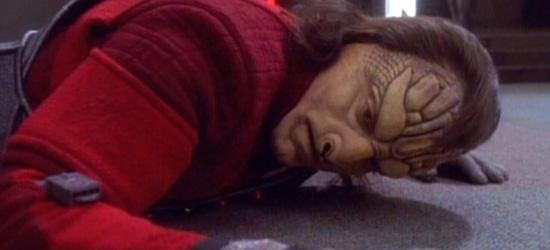
Interesting. Let's talk more about your DS9 episode, “Captive Pursuit.” What do you remember of the experience? Obviously, the makeup must have been one huge element of your experience.
I'm trying to think if that was the first rubber-head thing I ever did. Well, I guess it must have been the first one that was really extensive. If the cast and crew were called at 8, you had to get there at 5:30 or 6, so they could start applying the makeup and prosthetics. The application time gets shorter as the show goes on, because they get more practiced at it, but the first couple of times it is laborious. Then, you have to get it taken off at the end. You can't just pull it off your face. That takes a lot of patience. Either that, or it takes not having had enough sleep the night before, so you just go to sleep in the makeup chair. And the thing I liked about that episode is the same thing I like about all Star Trek episodes. They're always about something real, you know what I mean? A real issue; it's not just fluff.
That DS9 episode was about the morality of fox hunting. The Tosk was fleeing from the Hunter, my character, and his two buddies, who were chasing him through many universes. He was rescued from the asteroid in which he was hiding by the DS9 folks, who thought it inhuman, or improper, or whatever. The Tosk had been bred specifically for this one job in life. His place in the universe was to be prey for my group of Hunters. I was even in a mostly red and black outfit, which is what fox hunters wear, and the argument was whether or not it was legitimate to hunt for sport, which is what we were doing. Even though the Tosk explained that his only purpose, and his only meaning in life, was to be our prey, does or doesn’t that legitimizes hunting a fellow for sport? It’s a thorny issue. And, at the time, in the real world, people were making a big stink about fox hunting, so the effect was that this story was about a real issue. That’s what made Star Trek terrific.
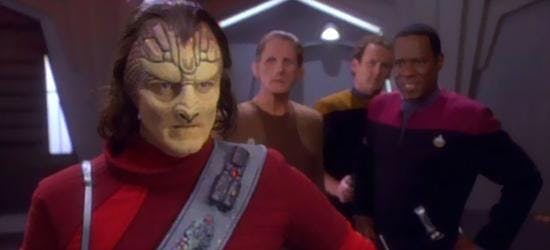
Your character was the only Hunter that viewers ever saw that did not wear a helmet. Any idea why your character didn't sport one, or is that news to you?
I had one in the beginning, but I took it off. At the top of the show, I've got one. That no other hunter took off their helmet, it was probably just to save money and not have to do the makeup.
Any other thoughts on “Captive Pursuit”?
I remember that I wasn't really sure what to expect, but by the end of those eight or 10 days, I was a complete fan. I was completely sold on DS9, the way it was done, the writing, the production, everything. I was completely sold. Another thing that makes me feel kind of good is that the two makeups, mine and the Tosk's, won Emmys and they were on display in case in the Paramount offices in Hollywood. They were there for a long time. The Tosk makeup was incredible. That guy's performance was fantastic, but the makeup, head to toe… he looked like what he was supposed to be, sort of a giant walking toad. It was amazing. Amazing makeup.
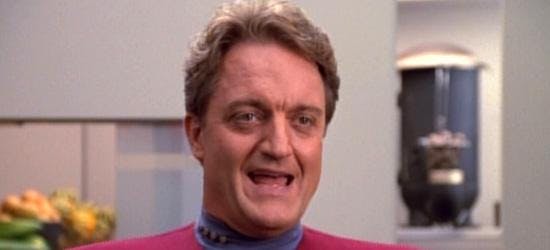
Let's switch to Voyager and “Death Wish.” How did that opportunity come along?
That was a fantastic episode. By that time, they knew me. I'd auditioned for Odo, and finished second, but they loved me and they told me so. They want real actors for this stuff. When “Death Wish” came up, they called me and said, "Please come in." Well, they called my agent to ask if I'd come in. The way I played the character I think was, just as a guess, unlike the way anybody else who was auditioning did it. I am fortunate to have made that choice a couple of times. Anyway, they were highly complimentary.
What did you do that was different, Gerrit?
I took it in contrast to what they were expecting of me. I played it as much lighter, and as a lighter-hearted guy. I wasn't all glum about wanting to commit suicide and not being allowed to. That was ... The suicide part was the society issue. The real issue was whether or not you have control over your own life, which is to say, “Can you legislate against suicide?” That is still a hot button issue. In the episode, the only person who can't stand it is Q.
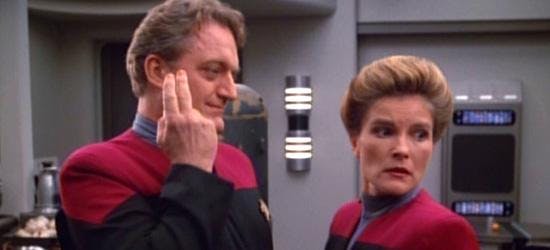
How did you enjoy working with John de Lancie and also with Kate Mulgrew?
I loved de Lancie. He and I were friends all ready. We had some good laughs together. I thought Kate was terrific. I worked with her before, too, on a sitcom pilot that didn't go anywhere. They are terrific actors, both of them. I admire anybody who can play the captain. That requires mouthing a lot of stuff that would come out very silly in other people's hands. Kate was able to handle the potentially… well, silly is the only word that comes to mind, parts of the dialogue and make them seem totally legit. There were no seams in her character anywhere. There was no way you could poke a hole in her character. She was completely legit.
How satisfied were you with how the episode came together?
I thought it was terrific. Again, they took such care, the producers, the Star Trek people themselves, took such care to make sure every little detail was absolutely correct. Which is, among other reasons, why it's so difficult to get an actual Star Trek prop off the set. They guard everything rather jealously.
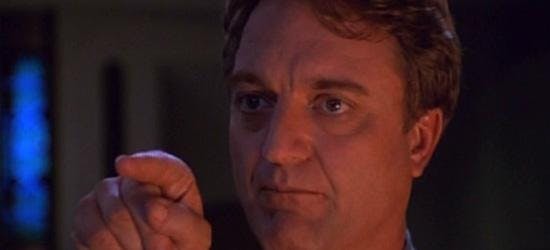
Star Trek is a huge phenomenon, and we're celebrating the 50th anniversary this year. What does it mean to you to have played two roles, one particularly memorable, and have your own little niche in the franchise?
It means a good deal, frankly, to have been part of something, however small, a part of something with that kind of legitimacy, and lasting appeal, and fundamental honesty. It is a great thing to be able to say I was a part of. I could do a million Starsky and Hutch episodes and it doesn't add up to one Star Trek episode.

